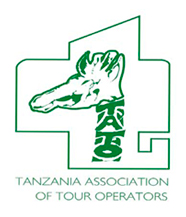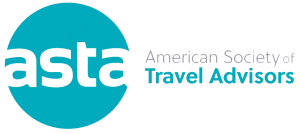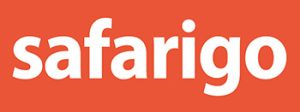Marangu Route (6 DAY)
This route starts on the Eastern side of Kilimanjaro. Accommodations will be in dormitories.
DAY 1
Marangu Gate (6,000 ft) to Mandara Hut (9,000 ft)
After breakfast at the hotel in Arusha, your duffle bags will be loaded into Tanzania Roadside Expeditions vehicle and be transferred to Marangu Gate. The drive is through a s open land savannah,maize, banana and coffee plantations to Marangu Park Gate (6,000 ft). Your guide will do some park entry formalities before you get introduced to the climbing crew team. Our climb begins as we enter the mountain rainforest on the well maintained trail. On the trail, it is possible to see black and white colobus monkeys and tree hyrax. We arrive at Mandara Camp late afternoon and have dinner and stay there overnight. Hiking time: 3-4 hours.
DAY 2
Mandara Hut (9,000 ft) to Horombo Hut (1,220 ft)
After breakfast at Mandara Hut, we pack and hike for 1.5 hours to the Heath Zone. The heath zone has gorgeous colorful birds and flowers, sunbirds, and blooming protea and lobelia’s. After 3/4 of our days journey, we have lunch. At this point, you will see stunning views of Mawenzi Peak and Kibo Peak. We continue on the hike for about 2 more hours. We arrive at Horombo Hut (12,205 ft) in the late afternoon. After a long rest, we have dinner and stay overnight. Hiking time: 5-6 hours.
DAY 3
Acclimatization Day
This is a leisurely day designed to help build your body and get rid of any accumulated exhaustion and get adjusted to the altitude. After breakfast, we pack and start the hike on Moorland and Heath Zones through the upper Mawenzi Route to Zebra Rocks for just 1,000 ft and have lunch. Afterwards, we we descend back to Horombo Hut for rest, dinner, and overnight sleep.
DAY 4
Horombo Hut ( 12,205 ft) to Kibo Hut (15,403 ft)
After breakfast, we pack and start the hike through Heath and Moorland Zones. As we arrive at Maua River marsh areas, you will see gorgeous giant groundsels. We continue with the hike at Moorland Zone passing the last water and enter the Alpine Desert Zone at the saddle between Kibo Peak and Mawenzi Peak for lunch and rest. After lunch, we do 2 more hours of hiking along the exposed desert as we arrive at Kibo Hut ( 15, 430 ft). Before dinner, there is a briefing about how to dress for the next day while summiting. Afterwards, we have an early dinner and stay overnight.
DAY 5
Kibo Hut (15,403 ft) to Summit (19, 340 ft) and descent to Horombo Hut (12,205 ft)
At midnight, you are woken up, have a light breakfast, and start the final push to the Summit. You must dress warmly to protect yourself from wind and rain from head to toe as you go through the harsh weather of the Summit in the frozen Tundra Zone. You will need to use your headlamp. The trail switches back and forth as it zigzags on our route up on gravel stones. The temperature will plummet to freezing (0 or below 0 degrees Fahrenheit) on this steep and strenuous climb. We go at a slow but steady pace with many stops to drink water. We arrive at Gillman’s Point (18,600 ft) by dawn when the sunrise appears to the East. Climbers feeling strong enough and less affected by altitude symptoms can continue from Gilman’s Point to the Summit which will take about 2 hours. These climbers will hike along the crater rim and arrive at Uhuru Peak ( 19, 340 ft). Uhuru means “freedom” ! Climbers will have the opportunity to take pictures and will descend along the same route to Kibo Hut for brunch and a long rest. Afterwards, we pack, get more water and descend through the saddle Alpine Desert, Moorland, and Heath Zones to Horombo Hut ( 12,205 ft). Hiking Time: 12-14 hours.
DAY 6
Horombo Hut (12,205 ft) to Marangu Gate (6,000 ft)
After breakfast, we pack, tip the climbing crew team and descend through Moorland and Heath Zones to Mandara Hut ( 9,000 ft) to rest, eat lunch, and afterwards descend through mountain rainforest to arrive at Marangu Gate ( 6,000 ft). You need to register into the Kilimanjaro guest book the highest point you reached. If it is Gillman’s Point you will be awarded the green certificate. The climber’s who reached the Summit of Uhuru Peak receive the golden certificate. Your duffle bags will be loaded into Tanzania Roadside Expeditions company vehicles and you will be driven to your hotel in Arusha for shower, dinner and overnight or transferred to the airport for your flight back home. Hiking Time: 5-6 hours.
6 days plus 2 spent at Hotel/Lodge
What to Bring
Clothing:
- T-shirts (synthetic materials are best as cotton retains moisture)
- Waterproof thigh-length jacket (Goretex or similar)
- Gloves (waterproof warm outers + thin liners)
- Warm hat (or balaclava) that covers the ears
- Waterproof walking boots (well broken-in)
- Waterproof outer trousers with a warm mid-layer (fleece or down)
- Warm long-sleeved shirt
- Warm walking trousers (not jeans!)
- Thermal underwear
- Walking socks (several pairs)
- Walking shorts
- Trainers or soft shoes for relaxing
- Sun-hat
- Gaiters
Equipment:
- Glacier glasses (or good quality sunglasses preferably with side shields)
- Personal first aid kit & essential medications
- Wet wipes
- Warm sleeping bag (3/4-season)
- Sleeping bag liner
- Trekking poles (they are available locally)
- Small towel
- Head Torch/ Head Lamp and spare batteries
- Spare plastic bags
- Water bottle(s) (minimum 6.3 pint or 3 liters capacity)
- High factor sunscreen and chap stick
- High energy snacks, dried fruit, nuts, and sweets
- A small bottle of cordial or squash concentrate (to liven up the flat taste of boiled water) or electrolytes
Tipping
Tipping is an accepted part of life in Tanzania, and you will be expected to tip to reward the climbing crew appropriately to keep them motivated to work at their highest ability. You will be briefed on arrival as to when and how much is appropriate, however, depending on the size of your group you should budget on a personal contribution of around $100-$150 for your trek guides, cooks and porters who accompany you on the trek. This does not include the company group leader naturalist guide. Our naturalist guide receives $50 per client. He is the most highly trained person on the trek team.
Includes:
- Trained Kilimanjaro guides
- All relevant Kilimanjaro Park fees & rescue fees
- Emergency medical evacuation
- All accommodation as described in the itinerary
- Transfers as described in the itinerary
- Drinks on the hike (potable water, tea, coffee & hot chocolate)
Excludes:
- International flights
- Entry visas
- Gratuities
- Items of a personal nature
- Alterations to this itinerary (i.e. if different accommodations and services are provided then the price will most likely vary up or down)
- Airport departure taxes (unless stated)
- Laundry
- Beverages in hotels (except those in your personal safari vehicle)
- Hospital bills and international evacuation in the event of an emergency







